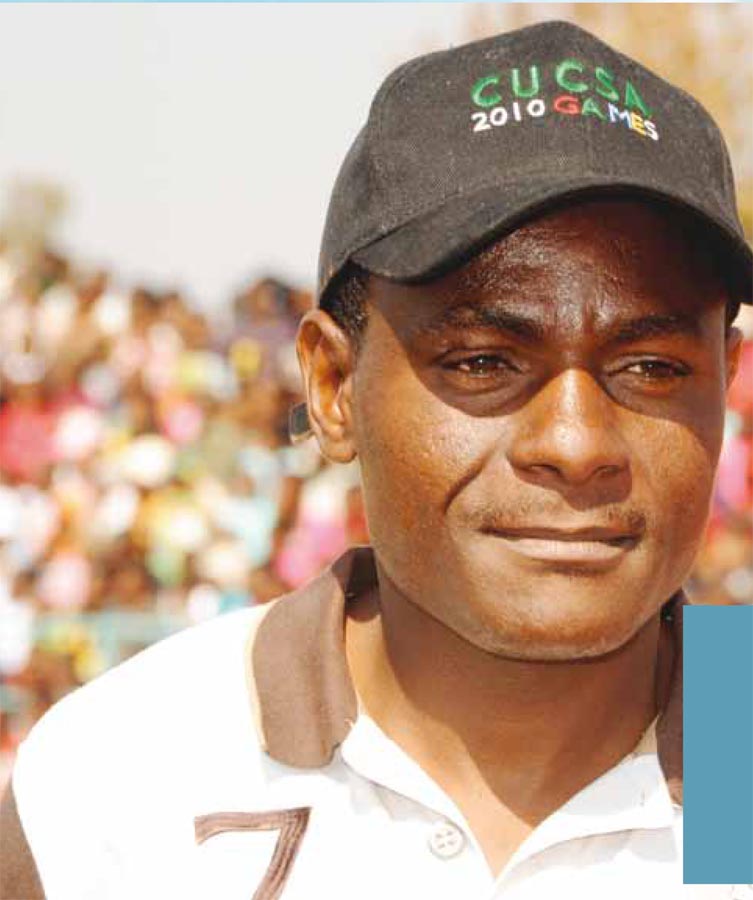Beyond the Olympic medal
Source : Kutlwano
Author : Lucrecia Chima
Location : Gaborone
Event : Interview
It seems individuals participate in sport merely for money, medals, and fame. Offensive though such might sound, this line of thinking is influenced by the fact that once they think they have earned enough they feel fulfilled to the extent of even considering early retirement.
For some years local sportspersons have been campaigning to clinch the country’s first Olympic medal yet they have never stopped for a moment to consider the fundamental principle of Olympism.
Although the Olympics Charter is clear on the social calls that Olympians should play in society, it is not the case in Botswana. It would appear local sports men and women are out only to win medals and earn national pride rather than Olympic values, which include bringing together all sports men and women, able bodied and those with disabilities.
Certainly only a handful of former Olympians are still involved in sports while some who are still active prefer to be officials rather than participate in development programmes and social causes geared towards helping society.
Although there are presentations on Laurens Sport for Good Foundation, which employs sport as a means to help underprivileged young people around the world, none of our sports persons has developed interest in such a course.
Some countries such as Kenya have benefited immensely from such noble courses through Mathare Football project to mention a few.
The Laurens foundation was founded in 1999 to promote the use of sport as a tool for social change. For instance, the 2004 Paralympics gold medalist Tshotlego Morama could have initiated a project looking at the challenge at the time.
This would have drawn public attention to the plight of many youths in the country. Since bringing a medal from the Athens Games less has been heard about her, yet her title remains forever.
Having such projects is likely to benefit the country as Laurens World Sports Academy raises funds for such initiatives.
Only Glody Dube seems to be inspired by the values of Olympism as he has been involved with Matshelagabedi race geared towards unearthing raw talent and empowering young people but the rest has not been heard of.
To a certain extent some people can point a finger at the national Olympics committee for not doing much to educate their sports persons on the concept of Olympism.
Unlike in other countries former Olympians are not engaged or given the respect they deserve as the country’s ambassadors.
Such also could challenge them to uphold Olympic values. Embarking on such projects is likely to earn the sports person long-term recognition that is broader than that of winning a medal. It can also create more interest in the Olympic Games and their objective.
Such will also inspire them to compete against each other for a good course and not for medals and money alone.
Today Botswana has a number of poor people. For instance, there are many orphans in the country yet none of the former Olympians has shown interest in bettering their lives.
Botswana National Olympics Committee (BNOC) CEO, Tuelo Serufho, reveals that the absence of an athlete’s commission is what hinders such initiatives.
“Without an athlete’s commission we cannot interact with Olympians. However, we are in the process of forming such a commission urgently,” he says.
Presently the BNOC has been dealing with active athletes who are also concentrating on qualifying for some competitions only, which is quite unfair.
Therefore, it is only apt to form and Olympian association to cater for all those who have participated in Olympics competitions - both active and inactive athletes.
“We are presently compiling a database to help establish their whereabouts, so that we can engage them,” states Serufho, adding, “once established they will be taken through enlightening fora to boost their knowledge on Olympian values and apart from that they will be made to attend some fora under the International Olympics Committee.”
The CEO says Olympians’ involvement in projects will benefit the country at large as the Olympians will be able to tackle various issues affecting society.
He acknowledges that they had been slow to undertake some of the tasks due capacity constrains, saying their desire is to see some of these projects up and running.
Once achieved, it is hoped that former Olympians will shrug off the negative tag of being in sport only for money.
Teaser:
Only Glody Dube seems to be inspired by the values of Olympism













